We hear what the media tells us and we are supposed to accept it as all of the facts, details, players and the timeline. But when those that held key intelligence positions talk to each other on matters of national security, we dont know about that until now.
Truth be told, Politico reported that Barack Obama admitted failure regarding taking action earlier on Russia including key warnings in 2014. Then the New York Times explained the substantial delay by the Obama White House to respond.
But beyond the Obama White House, the NSA and the Department of Homeland Security, what were the two top intelligence officials chatting about as Monday morning quarterbacks and since the election?
Not being a fan of either former official, at least Mike Morell appears to be quite honest in introspective on the matter of missing intelligence, when actually it was under the purview of NSA and FBI and he appears to have taken an honest long look at President Trump.
The politics of spying in America has never been more intense. President Trump has taken to publicly bashing his intelligence agencies and continues, a full year later, to question their conclusion that Russia intervened in the 2016 U.S. election on his behalf. For their part, an array of career spooks have come out of the shadows where they spent their careers to challenge the commander-in-chief in once unthinkably public terms.
Michael Morell is one of the career types who’s broken with decades of practice to confront Trump. A veteran of nearly three decades in the CIA, Morell rose from within the ranks to become the agency’s longtime deputy director, twice serving as its acting leader before retiring during President Barack Obama’s second term. In the summer of 2016, he broke with tradition to endorse Hillary Clinton over Trump, and he has continued to sound the alarm ever since.
But in a revealingly self-critical and at times surprising interview for this week’s Global POLITICO, Morell acknowledges that he and other spy-world critics of the president failed to fully “think through” the negative backlash generated by their going political. “There was a significant downside,” Morell said in the interview.
Morell, who grew up as a superstar CIA analyst and eventually graduated to become President George W. Bush’s personal daily intelligence briefer during the momentous events before and after the terrorist attack of Sept. 11, 2001, was also reflective about the costs of the massive shift in emphasis toward counterterrorism after that attack – in particular, a failure to focus on the threat posed by a resurgent Russia under President Vladimir Putin until it was arguably too late.
The Russian 2016 hacking, Morell told me, was in fact a U.S. “intelligence failure” in multiple ways. It was, he argued, at the least “a failure of imagination that’s not dissimilar to the failure of imagination that we had for 9/11,” with America’s spy agencies apparently unable to have conceived of social media platforms such as Facebook and Twitter and electronic hacking of Gmail being used to attack the country’s election.
But it was another kind of failure, too, Morell argued, of shifting money away from Russia and elsewhere in the name of fighting terrorism. “As we were trying to protect the country from terrorists,” he said, “we became more blind to what was going on in the rest of the world, both from a collection perspective and from an analytic perspective. And that was a cost…. When you make choices, you leave significant risk on the table.”
Glasser: I’m Susan Glasser, and welcome back to The Global POLITICO. I’m delighted to tell you that our guest this week is Michael Morell, who has not once, but twice, been the acting director of the CIA and has emerged out of the shadows of the deep state, if you will, to become not only a very vocal public advocate for the intelligence community in these embattled times, but also something of a journalist and a creator of podcasts, as we’ll talk about, I’m sure.
But, of course, intelligence matters—which I believe is the name of your podcast—
Morell: It is the name of the podcast, yes.
Glasser: And is also really the subject of this conversation, as of most of your conversations, because it’s very rare that you have somebody who’s emerging—or at least, it would have been, until Donald Trump—to have somebody like you, who’s emerging from a three-decade-long career inside the intelligence community, to play such vocal and public role. Was there any particular sort of tipping point for you that made you think, “Well, I’m going to go public with this”?
Morell: So, there were really two moments here, right, for me. One was when I first left government, I did a 60 Minutes interview about my life inside CIA, and it’s something the agency thought that was a good thing to do, and I taped most of it before I left the agency. And I really liked it. And I, soon after that, joined CBS News as an on-air commentator on national security issues, and it resonated with me because I saw it in very similar terms to what I used to do for presidents. And I used to help–
Glasser: And you were the guy who literally gave the presidential daily briefing to George W. Bush, before and after 9/11?
Morell: Correct. For the entire year of 2001. And then, I had been involved in the publication of the president’s daily brief before that and after that. And of course, I briefed President Obama a lot when I was deputy director.
So, my fundamental job at the agency, as an analyst and then running the place, was to help the president think about the challenges we face in the world, right? And so, I saw my role on CBS, then, as helping the American people understand these incredibly complex challenges that we face. So, that was the first kind of public stepping out.
The second was in August of 2016, when I became political, when I endorsed Hillary Clinton with an op-ed in The New York Times, and that was a very difficult decision for me, because I had never been political before. I worked at this nonpolitical agency, bright red line between intelligence and policy, and intelligence and politics. So, I had never played that role before.
But I was so deeply concerned about what a Trump presidency might look like from a national security perspective, and believed that there was such a gap between Secretary Clinton and Donald Trump with regard to how well they would protect the country, that I thought it extremely important to come out and say that.
Glasser: Okay, so, flash-forward a year. Was that a mistake?
Morell: So, I don’t think it was a mistake. I think there were downsides to it that I didn’t think about at the time. I was concerned about what is the impact it would have on the agency, right? Very concerned about that, thought that through. But I don’t think I fully thought through the implications.
And one of the ways I’ve thought about that, Susan, is—okay, how did Donald Trump see this? Right? And from—it’s very important—one of the things we do as intelligence analysts is make sure that our guy—the president—understands the other guy. Right?
So, let’s put ourselves here in Donald Trump’s shoes. So, what does he see? Right? He sees a former director of CIA and a former director of NSA, Mike Hayden, who I have the greatest respect for, criticizing him and his policies. Right? And he could rightfully have said, “Huh, what’s going on with these intelligence guys?” Right?
Glasser: It embroiders his narrative.
Morell: Exactly. And then he sees a former acting director and deputy director of CIA criticizing him and endorsing his opponent. And then he gets his first intelligence briefing, after becoming the Republican nominee, and within 24 to 48 hours, there are leaks out of that that are critical of him and his then-national security advisor, Mike Flynn.
And so, this stuff starts to build, right? And he must have said to himself, “What is it with these intelligence guys? Are they political?” The current director at the time, John Brennan, during the campaign occasionally would push back on things that Donald Trump had said.
So, when Trump talked about the Iran nuclear deal being the worst deal in the history of American diplomacy, and he was going to tear it up on the first day—John Brennan came out publicly and said, “That would be an act of folly.” So, he sees current sitting director pushing back on him. Right?
Then he becomes president, and he’s supposed to be getting a daily brief from the moment he becomes the president-elect. Right? And he doesn’t. And within a few days, there’s leaks about how he’s not taking his briefing. So, he must have thought—right?—that, “Who are these guys? Are these guys out to get me? Is this a political organization? Can I think about them as a political organization when I become president?”
So, I think there was a significant downside to those of us who became political in that moment. So, if I could have thought of that, would I have ended up in a different place? I don’t know. But it’s something I didn’t think about.
Glasser: Well, it’s very interesting, because of course, there are so many things you don’t know at that moment in time, including, of course, I’m sure you assumed, along with everybody else, that Hillary Clinton was likely to be elected, and you saw this as contributing to that in some way. But it’s certainly relevant in the context of the situation we find ourselves in a year later. And, if it tends to embolden Trump in his critique of your former colleagues who are still serving in the intelligence agencies, and not only has this been a theme that he has struck repeatedly to criticize—but also to politicize this.
And inadvertently, perhaps, you or others who spoke out and have continued to speak out actually tend to underscore his feeling that there’s a political divide, and now you and others are on one side of it, and potentially all your former colleagues, and then he’s on the other side of it.
That was really underscored for me on his recent trip to Asia, when Donald Trump once again seemed to take Vladimir Putin’s side on the issue of Russian intervention in the election over the conclusions of the U.S. intelligence agencies. But it was so revealing when they tried to fix it—right?—and he sort of said, “Well, I’m in favor of the current intelligence agencies, but not the former ones.”
Morell: Yeah, and you can’t pick and choose like that. And when people in the intelligence community—particularly people in CIA, because for every other part of the intelligence community except CIA, you’re working for a cabinet member. At CIA, you are working for the president of the United States. That is your customer. Right?
00:08:03 So, when you see your customer questioning what it is that you are providing to him or her, and that person seems to be cherry-picking what they accept and what they don’t accept, it’s demoralizing. And when it’s demoralizing, people take actions, right? So, I live pretty close to the agency, and there’s a coffee shop between me and the agency, and I’ve met a number of agency officers in that coffee shop who have said to me, “I’m thinking about leaving.”
And my pushback to them is, “Your country needs you now more than ever. Don’t leave.” Right? But it does lead people to question whether or not what they’re doing is of value. And—look—working there is really hard. The problems are hard. They’re complex. They’re not easy to solve. Some of these targets where we’re trying to collect intelligence are extraordinarily difficult. People operate in very dangerous places. The hours are long. The pressure on families is really tough.
And so, if you think what you’re doing doesn’t matter, because the president of the United States is selectively listening, it has impact.
Glasser: So, tell me about your views of the current director of the CIA, Mike Pompeo. It’s been reported that he’s a leading candidate to potentially become secretary of state when Rex Tillerson leaves, which is the subject, of course, of a big Washington parlor game.
But Pompeo has personally been undertaking the presidential daily brief, by all accounts, as much as six days a week, he’s leveraged that time with the president into a close relationship with the president. So, is that a normal role for the director of the CIA to be playing? Do you think that he has politicized the agency further by doing so?
Morell: I think that the relationship that Mike Pompeo has developed with the president is a very good thing. One of the most important things a director does is develop a relationship with the president that allows you to get your best information and your best analysis in front of the president. So, I actually believe that it’s Mike’s relationship with the president that has gotten the intelligence community and the CIA in the room almost every day of the week, and is getting them time, which gives the intelligence community—Susan—and the CIA the opportunity to tell the president what they think.
And I think without that relationship that the two of them have—which is why he’s the leading candidate to replace Secretary Tillerson—we might not be in the room at all. So, I think that is a very good thing. And one of the things that folks at CIA feel really good about is the fact that their director is getting them in the room every day.
Glasser: Do you think the director is presenting objective, unbiased analysis of situations like the Russia situation or the Iran situation to the president?
Morell: So, I’m not in the room.
Glasser: No, I know.
Morell: Obviously, I’m not in the room, but there’s really three people in the room. There’s the director, Mike Pompeo, and there’s the DNI, Dan Coats, and then there’s the briefer, somebody like me, right? What I did for George Bush, there’s a senior analyst who’s doing that for President Trump. He’s the one who actually does the briefing, and Mike Pompeo and Dan Coats, I would bet, do the color commentary, right? That’s the way it worked with me and George Tenet. I was the play-by-play guy and George Tenet was the color commentator.
I’m absolutely certain—because I know the person who’s briefing—I mean, I grew up with that person, worked with that person, have a hundred percent confidence that that person is presenting the intelligence in a nonpolitical, nonpartisan, nonpolicy manner. What Mike Pompeo might say, or Dan Coats might say is—no idea.
But I believe the views of the intelligence community are getting across. Whether the president is accepting them or not is really hard to say.
Glasser: Well, his public statements indicate that he’s not accepting them, at least in certain critical areas.
Morell: On certain cases, yes. Russia, for example.
Glasser: Russia. Okay. So, let’s talk about Russia. Dana Priest—a terrific journalist whom you know—just wrote a very critical and very interesting piece in The New Yorker, and she said Russia was an intelligence failure, the Russian intervention in our elections. That’s not really the widely accepted narrative, but I thought it was a powerful piece. Do you agree with that?
Morell: So, she had a couple of different themes, right? And I’d say charges, right? One was the intelligence failure. One was you didn’t brief Congress soon enough, right?
Glasser: Right.
Morell: On what you did know.
Glasser: And then there’s the question of the social media piece, and basically—
Morell: Right. So, let’s deal with just the intelligence failure piece. I think this is a legitimate question to ask. And I look at it from two perspectives. One, in the intelligence business, we think about warning in two ways: strategic warning—Al Qaeda wants to attack us in the United States, right? And tactical warning: they’re going to attack us next week using this method, right? Those are two different kinds of warning.
So, I have little doubt that we, the intelligence community, didn’t see from a strategic sense this particular—and I’m talking about social media here, the weaponization of social media—that we did see that coming. Susan, I went back and looked at all of the unclassified versions of the worldwide threat testimony that the DNI and the director of the agency and the director of DIA give every year, and I read all of those.
I reread all of those. There’s a cyber section in every one, right? And the warnings are about—
Glasser: I remember Panetta, right? “The danger of a cyber Pearl Harbor.”
Morell: Right. “Cyber Pearl Harbor,” right. Attack on our infrastructure. I didn’t see anywhere in there—and this was criticism of myself, right, because I was deputy director of the CIA until August of 2013—I didn’t see anywhere in those worldwide threat testimonies a warning about the possible use of social media to attack us. So, I think it’s a legitimate question.
And on the tactical question, my question is, when—and I don’t know the answer this—my question is, when did the intelligence community see the Russians messing around with social media in the election?
And my question’s there because you remember the DNI—the Director of National Intelligence—and the Secretary of Homeland Security put out a public statement—
Glasser: On October 7.
Morell: Exactly. And it said two things. Right? The Russians used cyber to steal stuff from the Democratic National Committee and from John Podesta—Hillary Clinton’s campaign manager—and gave the embarrassing stuff to WikiLeaks, right? Which then used it against the secretary.
And then, two, tried to get into voting systems in the states. It didn’t mention anything about the use of social media to spread and amplify fake news. And so, I wonder, did they know about it at that point? Or did they not know about it at that point?
Glasser: Well, you know, it’s very interesting you raise this, because I think they didn’t. Because I did a very interesting interview of The Global POLITICO with Jim Clapper, who was the DNI at the time, who was the signatory, or was the issuer of that statement, along with Jeh Johnson—who I also interviewed on The Global POLITICO—I asked Clapper—this was quite recently, this fall—“What have you learned that you didn’t know before the election?” What have you learned from the disclosures that are coming out publicly, or in testimony and the like as this Russiagate investigation unfolds?
That was what he spotlighted for me, in our conversation. Just this fall he said, I learned the extent to which they were active on these platforms like Facebook and Twitter, which was not something I really was aware of. And I thought, “Wow, that’s pretty amazing. He was the Director of National Intelligence.”
Morrell: You know what’s interesting is, if that’s true—and it certainly sounds like it is, based on your conversation with Jim, who is a wonderful man and is the best DNI that we’ve ever had, in my view—if that’s true, then it’s a failure of imagination that’s not dissimilar to the failure of imagination that we had for 9/11. Right?
Glasser: That’s right. And, by the way, another part of Dana’s critique is relevant here, which is the blind spot, or the failure of imagination at a time when we’ve invested literally billions of dollars—you know far better than I do—since 9/11, in our collection capabilities, in actually operationalizing the CIA, turning them into a fighting force; giving them capabilities you could have only dreamed of.
Are we too busy, basically, looking at satellite images of tanks when Facebook is the new Fulda Gap?
Morell: Let me say two things. One is, there’s a little bit of a danger in—and I’m correcting myself here a little bit—a little bit of a danger in overemphasizing the failure of imagination, which is an analytic thing. Right?
Glasser: Correct.
Morell: So, it’s a useful critique of analysts. But the other important players here are intelligence collectors, right? So, the failure to see this coming, and the failure to take some time before you actually see what’s happening is also a collection failure. It means you haven’t penetrated the right places with the right assets—CIA and NSA are the two big ones here—to tell you exactly what the Russians are doing. So, it’s a couple of important failures there.
The other way to answer your question, Susan, is that post-9/11, there was a huge flow of resources to counterterrorism. Not surprising. I mean, we moved hundreds of people internally. The collection resources were focused on counterterrorism. CIA got back into the paramilitary business in a way that it hadn’t been since the Office of Strategic Services days during World War II.
All understandable, but with the implication that we moved resources that were focused on the rest of the world, to include places like Russia. So, as we were trying to protect the country from terrorists, we became more blind to what was going on in the rest of the world, both from a collection perspective and from an analytic perspective. And that was a cost.
One of the things I’d like to point out is that—the CIA’s a large place and the total number of employees there is classified, but to put it into perspective for you, in 1991 we had x employees. By 2001—10 years later—we had .75x, so a 25 percent decline. When I walked out the door in 2013, even with a significant ramp-up in resources post-9/11, we only had 1.1x. So, essentially the same number of employees in 2013 as we had in 1991, in a world that was much, much more complex, with many, many more issues.
How do you cover all of that in the way you have to to protect the country? And the answer is, you can’t. Right? You’ve got to make choices. And when you make choices, you leave significant risk on the table.
Glasser: So, do you think that in making choices, we underestimated Russia and its return under Vladimir Putin?
Morell: I think yes. Right? I think in the early Putin days as president, and then certainly when Medvedev was president and Putin was prime minister, Russia was not what it is today. We were interacting with them in a much more normal way—we being the United States and Europe. It was only when Putin came back the second time as president, that the behavior started to turn, and turned significantly back towards what was essentially Russian behavior during the Cold War, which is challenge the United States everywhere you can in the world, and do whatever you can to undermine what they’re trying to accomplish. Do whatever you can to weaken them.
They’re being extraordinarily aggressive with regard to that. And that was a change. That wasn’t Vladimir Putin from day one.
Glasser: Well, that’s very interesting you make that argument. My husband and I were stationed in Moscow during Putin’s first term in office, and then back here for the second term of Bush’s presidency on forward. And there’s a real debate, I would say, among Russia hands about that argument that you just made. That’s very interesting to me, because Russia did invade Georgia in 2008, before Putin returned officially to the presidency.
And I think the Obama White House arguably staked its Russia policy on the view that you are expounding, that somehow Russia was more amenable to us, and then with Putin’s return to power, that it changed in some marked way.
I’m not sure that I agree with that, but it’s interesting that you take a definitive position on it.
Morell: I think there’s a debate, but I feel pretty comfortable with the position I’ve taken. I think Georgia was a turning point. I think Georgia was a really important moment, and maybe that should have been the wakeup call, you know, that moment where he was willing to invade a neighbor.
Glasser: And also, what lessons he took or didn’t take from that Western response to that.
Morell: Or lack of Western response to that, right?
Glasser: Yes.
Morell: Absolutely.
Glasser: I think so. To me, that’s a very key moment.
Morell: And, the two things we just talked about go in parallel, right? And are reinforcing to each other. So, he takes an aggressive step and he doesn’t get any pushback; he doesn’t get anything to deter him. Right? And that’s been the history of this relationship, in my view, since Georgia. Right? Is, he does something that is damaging to our interests or the interests of our allies, and there’s not a response, and so he keeps going, and he keeps going, and he keeps going.
Glasser: So, this is endlessly interesting to me to talk about Putin, but I want to cast it into the present a little bit more. So, he keeps going; he’s not only invading Ukraine, but much more aggressive in intervening in the elections, for example, of other countries on the periphery of Russia and Eastern and Central Europe, aggressive measures against neighbors in the Baltics, for example, in Estonia.
00 And so, that’s where you get this argument from many of my Russia-hand friends that, of course, this wasn’t something new, to intervene in the United States, and it’s exactly what he did in Poland, or in other countries. So that’s one bullet point on the question of our intelligence.
The other question is, did we do things to kind of unilaterally disarm from an intelligence point of view, on Russia?
Morell: Well, I think Russia was one of the places that suffered from the loss of resources as they flowed to counterterrorism—no doubt in my mind. There were things with regard to Georgia, for example, that I can’t talk about specifically, but things we could not tell the president about what was happening in Georgia at the particular time that they were doing what they were doing because we had turned off systems that used to be turned on, because now they were focused on other parts of the world. Right?
Glasser: The eye had turned.
Morell: So, absolutely, that suffered. I think—and there were also things that we were doing as a country that he was misreading—Putin was misreading. So, I talked earlier about the importance of an intelligence officer being able to tell the president, “Here’s the other guy’s view.” Well, what’s Putin’s view of us? Right?
Putin’s view of us is that we want to undermine him, and that we are actively working to do so. Right? He really believes that. And he points to things that are absolutely true. The State Department pushing for democracy in Russia openly. And then he points to things that aren’t true, like the CIA was behind the street protests in Kiev that led to all the problems in Ukraine. Right?
That’s his worldview, is that we are trying to undermine him, and that we want him to go away, right? And so, when you think about it in those terms, what he’s doing against us—right? It’s kind of interesting, right? It doesn’t justify what he’s doing, but it certainly puts it in perspective.
Glasser: No, I think that’s a great point to make, and I think it’s so important. So, Russiagate? Or whatever we want to call it. I don’t know if you have a better name for it than that. Based on your intelligence analyst hat, looking at the dots that are out there—how do we construct a narrative around them that makes sense? Is there enough information to construct a narrative? What do you make of the evidence that’s public, recognizing that it’s a very small amount of the evidence, presumably?
Morell: The best place to start is with a caveat, is I have no insight into the FBI investigation or the two investigations being done by the Intelligence Committees in the House and Senate. So, this is really me being an analyst, looking at everything that’s available, right?
The first thing I’d say is that there may be a benign explanation for all of this. What might that be? The benign explanation is that Vladimir Putin, understanding who Donald Trump was as a person, understanding how narcissistic he is, played to Donald Trump by saying he was a great guy—right? Had the potential to be a great leader, et cetera, et cetera.
And Trump responded exactly the way Putin wanted him to by reciprocating, right? Great leader, et cetera, et cetera. Right? Maybe what he did in Ukraine and Crimea was all right. Who are we to say? You know, Putin’s killed all these people, but so do we. You know, try to put this in perspective. Right? All of these things that Trump said could have been simply in response to Putin playing him, and playing his personality.
You know, when all that happened, of course, the media and the Clinton campaign jumped all over Donald Trump, right?—and said, “Boy, look at what this guy’s saying,” right? “This is inconsistent with the world in which we live in.” It is possible at that moment, that Steve Bannon and Steve Miller and Sebastian Gorka walked into Trump’s office in Trump Tower and said, “You know, you’re being criticized for what you said about Putin and Russia, but, boss, you’re right. Right? You’re absolutely right, and let us give you the intellectual context in which to think about this. And the intellectual context in which to think about it is, we actually need Russia as a partner, to push back against the two biggest threats that we see.”
Glasser: Right. China, yes.
Morell: Bannon, Miller and Gorka. China and Islamic extremism. And, Russia, a white, Christian country, fits—
Glasser: Their worldview.
Morell: Their worldview. Right? So, Putin might have played him, and then Bannon gives him an intellectual framework to say, “You’re right. Keep talking about this.” So, that is the totally benign view.
Am I open to the possibility that there is a malign view? Absolutely. I don’t discard that. I’ve been criticized by some people on the left for saying I don’t see any evidence here of a crime. I still don’t see any evidence of a crime. It doesn’t mean there is any. I just don’t see it.
Glasser: Including evidence of obstruction of justice?
Morell: So, let’s talk about what I think the possibilities are, going forward. So, I would not be surprised if Bob Mueller concludes that the Trump campaign did not violate the law with regard to its interactions with the Russians. I’m really open to that possibility. Why? Because, as you know, The New York Times, The Washington Post, every media outlet that is worth its salt has reporters digging into this, and they haven’t found anything.
And I think that, had there been something there, they would have found something. And I think Bob Mueller would have found it already and it would have leaked.
So, I’m really open to the possibility that there’s no there there on a crime being committed by the campaign and the Russians. Right? That interaction leading to criminal charges.
The second point I’d make is that I wouldn’t be surprised if there were single individuals who were associated with the campaign who violated the law with respect to their interactions with the Russians on the election. Paul Manafort comes to mind. I think he has little to no integrity. There’s no way you spend that much time with the old Ukrainian government and not bump up against Russian intelligence officers a lot.
I wouldn’t be surprised if there were single individuals who faced criminal charges here with regard to their interactions with the Russians, and Paul Manafort’s a possibility. But that’s different than a conspiracy by the campaign, right?
The third thing I’d say is, every FBI investigation that I’ve ever had visibility into or been involved in, the people who they’re looking at actually don’t end up getting charged with the crime they were being investigated for. They get charged with something else. Right? And that something else in this case could be the laundering of Russian organized crime funds. And if that was done by the Trump organization—if that was done knowingly—it’s a criminal violation.
If it was done unwittingly, because you didn’t do the due diligence that’s required under U.S. law for where the money is coming from, from overseas—it’s a civil penalty. And the Trump organization gets fined. What the politics of all that is, I have no idea. That’s the third thing I’d say.
The fourth thing I’d say is, the obstruction of justice issue. In my view, when I read the statute, boy, it looks—you know, it looks like you could make a case. Now, the hard part is intent. Right? You have to intend to violate the statute. You have to intend to obstruct justice. That’s the difficult piece to prove here.
You need something on paper, or you need somebody who heard the president say something about what he was trying to do here, or you need him to tell you that. Right? Well, he’s not going to do that. And so, while it looks like it to all of us, that that’s what he was trying to do—you’ve got to get to that intent part, and that’s what’s hard from a criminal perspective.
Glasser: So, well, it goes to Donald Trump’s state of mind, which is the other question I would ask you, with your intelligence analyst hat on. If you were the presidential daily briefer for Emmanuel Macron, or Vladimir Putin, for that matter—what would you tell that president about our president?
Morell: What I would say is—you know, I worked for 33 years at CIA. I watched a lot of foreign leaders. There’s a spectrum of narcissism among human beings. Right?
Glasser: Foreign leaders often—leaders have a lot of it.
Morell: Leaders of any country, right? They have a lot of it. Right? They are one or two standard deviations to the right of the mean. President Trump is no different from that, and in fact, he might be three or four standard deviations out. Right?
So, what I would say is, “Play to his narcissism. Play to his narcissism.” I think some leaders have done that exceptionally well. I think Prime Minister Abe of Japan has done it. I think Xi Jinping has done it. I think Macron has done it. There are some leaders who simply can’t bring themselves to do it, like Angela Merkel. She just—bless her heart—she can’t bring herself to do it.
But, play to his narcissism. Tell him he’s great. Tell him you want to help him. And then leave the details of the policy to your ministers. Right? So, from ministers to U.S. Cabinet officials, leave the details. Don’t talk about details with the president, just—
Glasser: Pretend you agree. Well, is it narcissism? Is it something more than that, though? Do you believe there’s some sort of an impairment?
Morell: I don’t know. I think narcissism itself is an impairment. Right?
Glasser: Speaking of—by the way, the mental state of people—there’s been a little bit of a controversy this year about Kim Jong Un and whether the United States government assesses him to be crazy in some way, or a rational actor. And there was an interesting testimony at an open conference by a CIA analyst, who said he is a rational actor.
Morell: Yes.
Glasser: But Donald Trump disagrees. What do you think?
Morell: He is. He is most definitely a rational actor. Within his worldview, right?
Glasser: Right.
Morell: And his worldview is not that different from Putin’s. His worldview is that the United States wants to overthrow him.
Glasser: Is out to get him, yeah, which is not wrong.
Morell: No. No, it is wrong. It is wrong. The United States of America doesn’t care whether there’s a North Korea. Right? The United States wants Kim Jong Un to stop his behavior that is threatening to us. If he does that, he is welcome to stay up there and run North Korea for as long as he wants. That is our view.
We are not trying to reunite the peninsula on the South’s terms. We are not trying to drive him from power. Right? We’re not.
Glasser: But, as a matter of policy, though, I believe it is our policy that we are very sorry for the people of North Korea that they live in such a totalitarian dictatorship.
Morell: Absolutely, but our—
Glasser: And we would prefer for their sake that they not live under it, but we’re not pursuing a policy of active regime change. That’s the difference.
Morell: Correct. Correct.
Glasser: I do believe it is our policy, actually, to oppose the North Korean regime, not just on nuclear weapons, but—
Morell: But across the board, right. But the most important stuff—
Glasser: Fair enough. I just wanted to clarify that we do actually care about the people of North Korea.
Morell: Yes, we do. Yes, we do. But the most important thing here, right—I mean, we care about human rights—the most important thing here is protecting U.S. cities from nuclear attack.
Glasser: Yes. We can definitely all agree on that.
Morell: Yes.
Glasser: Definitely. Well, I’m glad you clarified that point, though, on Kim Jong Un, because you do see that recur over and over again as an issue. I know we’re running out of time here.
So, we’ve talked Russia; we’ve talked Russiagate. Are there things that worry you, or that keep you up at night, that you think we are not paying attention to because we’re so obsessed with things like Donald Trump’s Twitter feed, and whether we’re going to have a nuclear war with North Korea, and Russia?
Morell: I’m smiling because—so, when I was deputy director, and I would do public events, or go to college campuses and talk to people and so forth and so on, I would always get asked what’s the one thing that keeps you up at night? Right? And I felt when I was in the job of deputy or acting director that I needed to answer it with a national security answer. So my answer was always terrorists with nuclear weapons. Right? That’s what keeps me up at night. And it still does. I still worry about that. Both Al Qaeda and Isis and other groups have said, “We’d like to get our hands on weapons of mass destruction, and we would use them.”
But the thing, Susan, that really keeps me up at night is that, at the end of the day the most important determinant of a country’s national security is the health of its economy and its society. Right? So, the thing that really keeps me up at night is the dysfunction in Washington that makes it impossible for people to come together and to compromise and make decisions that move our economy and our society forward. That is the most dangerous thing that we face.
I think Senator Corker essentially said that a couple weeks ago. Right? The biggest threat to the United States is us.
Glasser: Is ourselves. Do you think Donald Trump has been as bad as you feared?
Morell: I think that his instincts have been as bad as I feared. I think that we are very lucky to have people like Jim Mattis, and people like H.R. McMaster, and people like Dan Coats and others, who are able to pull him back from where his instincts are.
In some cases, they haven’t succeeded, like on Paris. In other cases, they pulled him halfway back, like on Iran. I think his initial instinct was rip up the deal. I think they pulled him back. I think on issues like Afghanistan, they’ve pulled him all the way back to—I think his initial instinct on Afghanistan was to get out, and they pulled him all the way back to a long-term commitment.
So, I think that his instincts are what I feared. We’re very lucky to have people who are willing to take on his instincts and to debate and question him to the point where he is willing to change his mind.
Glasser: Well, the question is also, if he’s going to change his mind, or do it only for a short amount of time. Jerusalem is another example of something where maybe people thought he’d changed his mind because he didn’t do it right at the opening strokes of January 20th, as he initially planned to do. But then you see, ten months later, that he is not really deterred from what was his—
Morell: Right. And I would probably—I mean, I don’t know what the internal debates were, but I would bet his national security team was undoubtedly unified in not thinking this was a good idea.
Glasser: Well, that’s right. And that’s the other thing we’ve learned that we didn’t know a year ago. Which was that, Trump placed great faith, on one hand, in all these big, brawny, military officers, current and former, but on the other hand, we’ve learned in a year that he’s willing to disregard their professional advice.
Morell: And I think there’s examples on both sides, right? I think that in some cases—look, it’s difficult over time to fight every day, to struggle every day with your boss. And it can wear you down. Right? And I hope that people like Jim Mattis and H.R. McMaster and John Kelly aren’t getting worn down.
Glasser: Well, you know, it’s interesting. While we were sitting here in this conversation, I just got an email saying that Dina Powell, the president’s deputy national security sdvisor, and by all accounts played a key early role. She was a Bush administration veteran, has been someone who has been helpful in translating General McMaster to Trump and his circle, is leaving. And so, another interesting data point.
Morell: We don’t know why she’s leaving, right, but that would be an example of getting worn down to the point where you lose somebody of Dina’s talent, worldview, perspective, that is consistent with, in my view, the right worldview, that the U.S. has to play a leadership role in the world—that maybe she’s gotten worn down.
Glasser: Well, not to mention the fact, I have to say, every time I look at a picture of a Trump meeting with a major foreign leader, especially like in the Middle East, Dina’s the only woman at the table. Always. Always. And so, who knows what that would be?
So, a final thought as we leave this really stimulating and interesting conversation. We’ve been pretty Russia-focused today, but I do love that you’ve jumped on over to the side of the fence and after three decades in the most secretive and closed organization in the United States, you are now a host of your own podcast. You’re a public commentator. You’re a journalist. What’s it like to be on the other side of the First Amendment?
Morell: I believe deeply in the role of the media. I just finished watching Ken Burns’ The Vietnam War.
Glasser: The Vietnam series—I’m halfway through.
Morell: I think it should be required watching for every American. Right? And what you see when you watch that is multiple presidents not only making the wrong decision, but actually lying to the American people. And the role of the media in making transparent the decisions the government is making and why they’re making them is extraordinarily important to our democracy. And it is very, very important that that Fourth Estate be vibrant and strong, very, very important.
And I’m worried about that a little bit. My college son a few months ago sent me an email and said, “Dad, you need to read this book on Hugo Chavez.” And he said, “You need to read it because the parallels between Chavez and Trump are striking.” So I got the book and I read it. And there’s some parallels, and there’s some similarities, and there’s as many differences, I thought. But there was something that really struck me, and it has to do with the media business.
And what struck me was that, when Hugo Chavez first got elected there was no political opposition. It had faded away. There was no opposition leader to stand up and paint a different future for Venezuela, one that challenged Chavez’s future. And, as a result of there being no political opposition, the Venezuelan media became the political opposition. And in becoming the political opposition, it lost all of its credibility with the Venezuelan people. Sound familiar?
Glasser: Yes.
Morell: So, I think that as important as the media’s role is here—and it’s probably more important today than it ever has been, given where we are—the media has to absolutely make certain that they are playing this straight. Right? And that they aren’t taking sides in any way.
Glasser: You know, I’m so glad you brought this up, and I think this is a very powerful point. And really, this has been one of my favorite episodes, I think, of The Global POLITICO. I’m really grateful to you for spending the time with us.

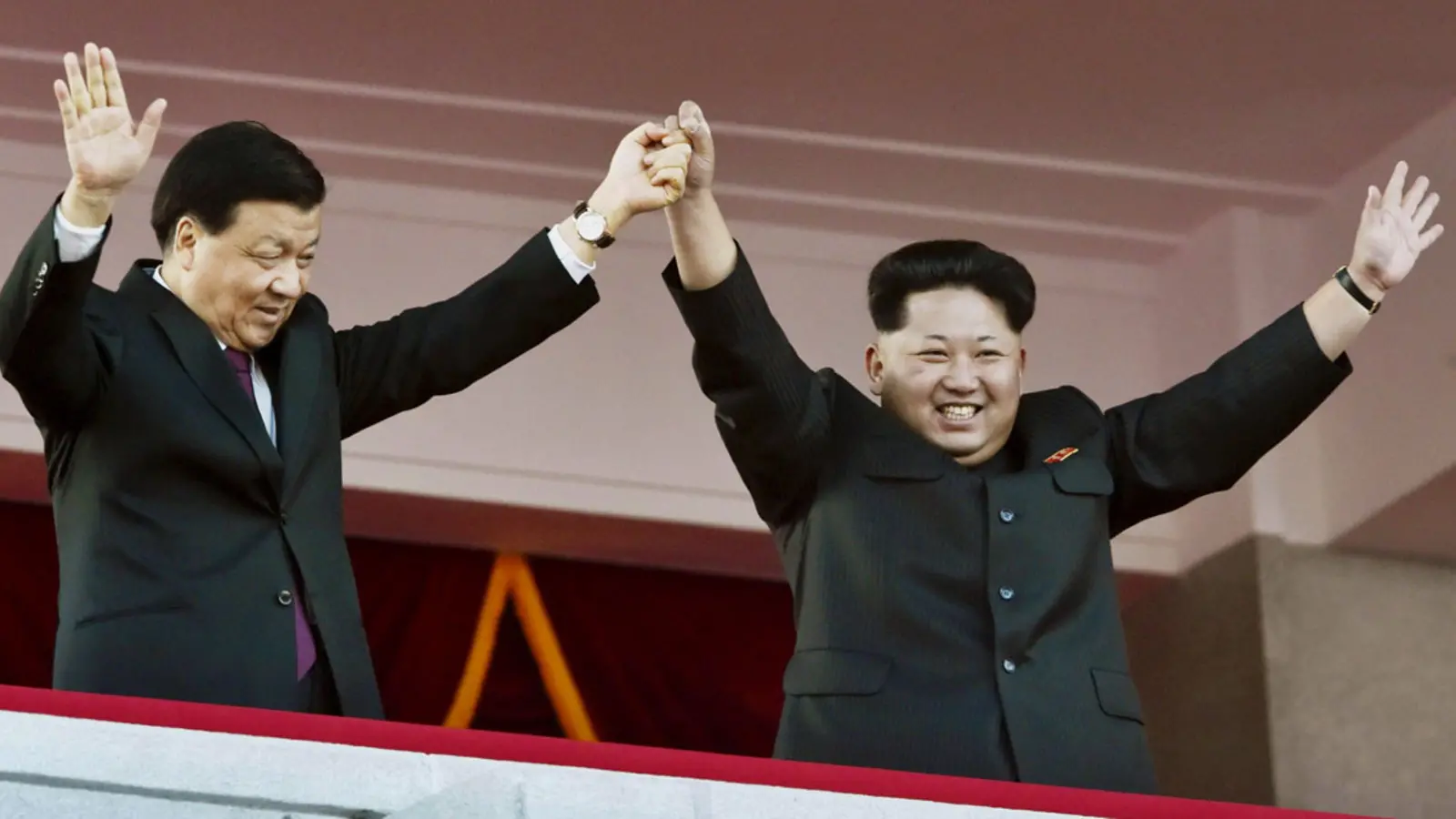
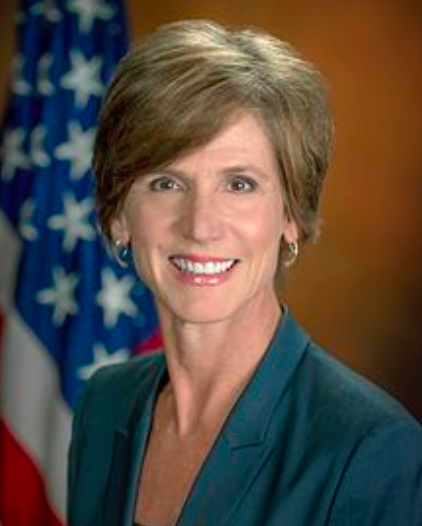
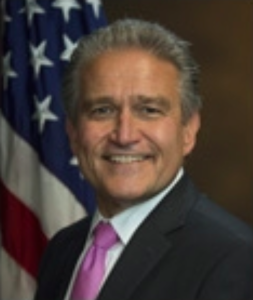
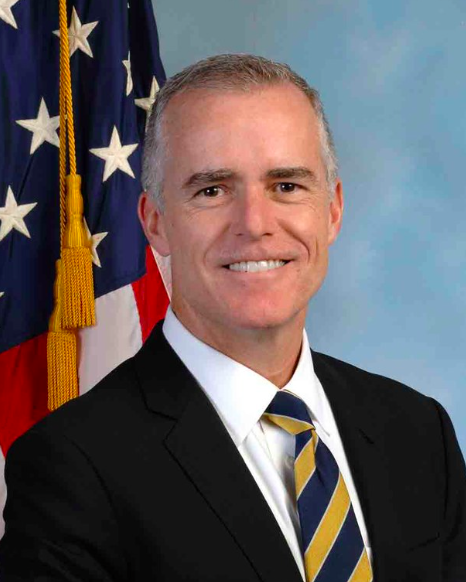
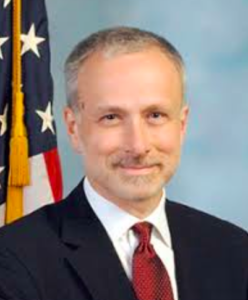


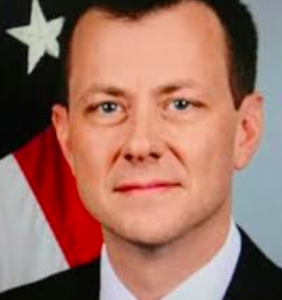
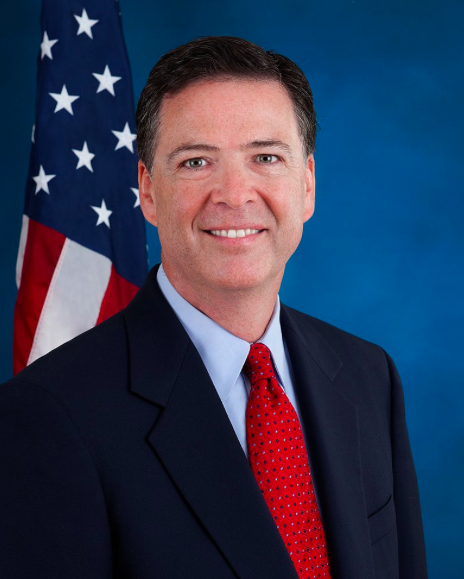
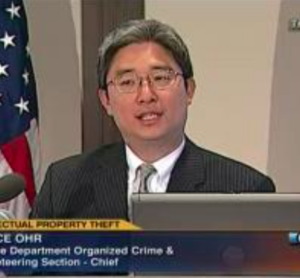
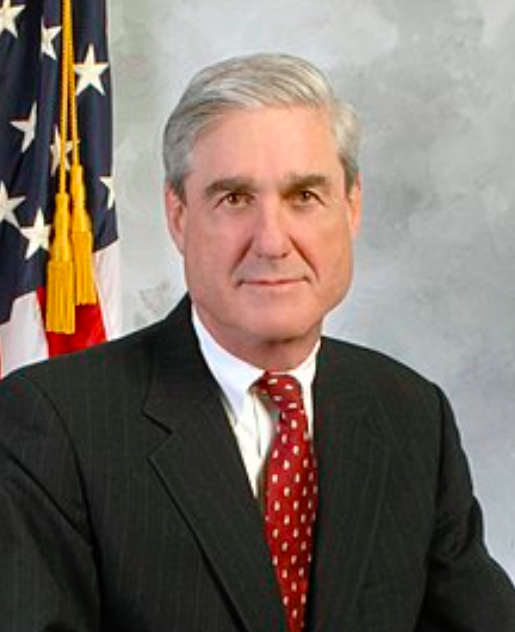
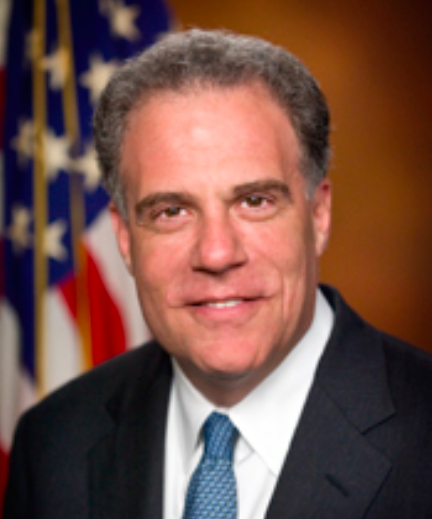
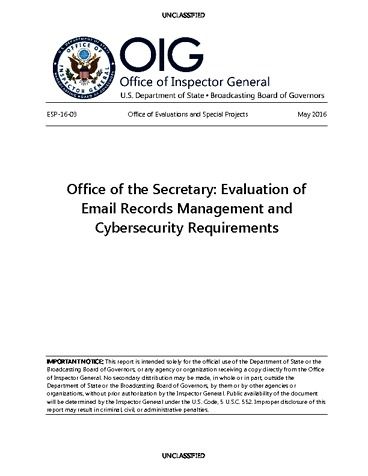


 Palestinian Authority President Mahmoud Abbas addresses supporters during a ceremony marking the 10th anniversary of the Palestinian leader Yasser Arafat’s death, at his headquarters in the West Bank city of Ramallah,November 11, 2014. (AP Photo/Nasser Nasser)
Palestinian Authority President Mahmoud Abbas addresses supporters during a ceremony marking the 10th anniversary of the Palestinian leader Yasser Arafat’s death, at his headquarters in the West Bank city of Ramallah,November 11, 2014. (AP Photo/Nasser Nasser)